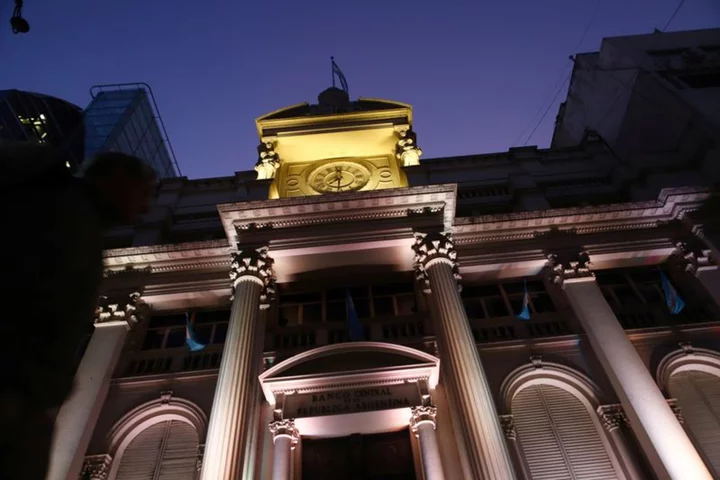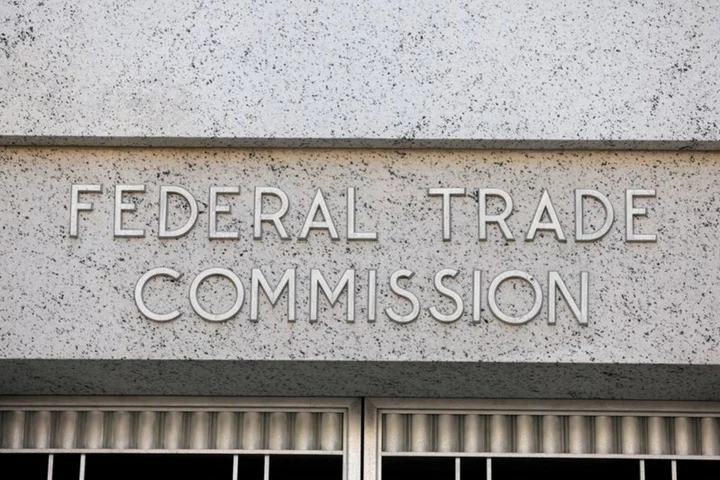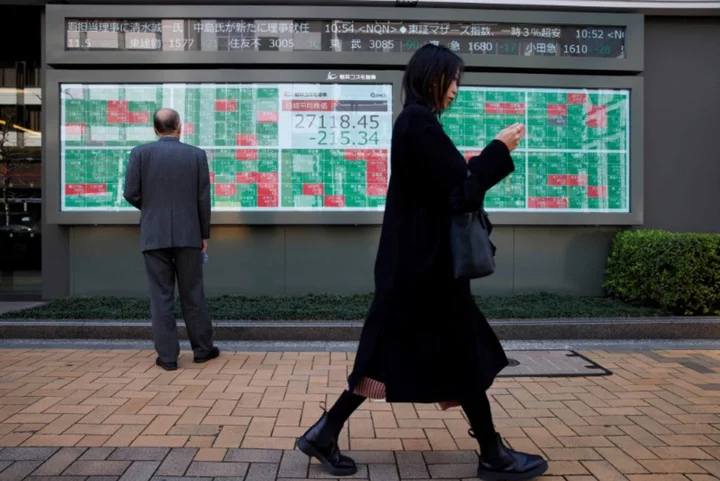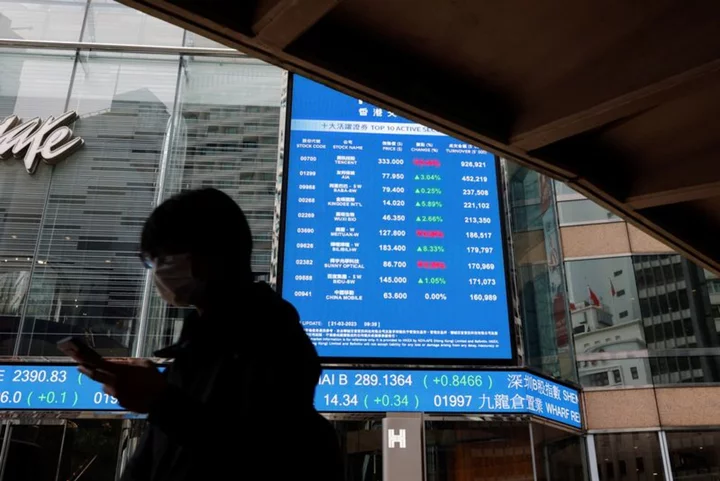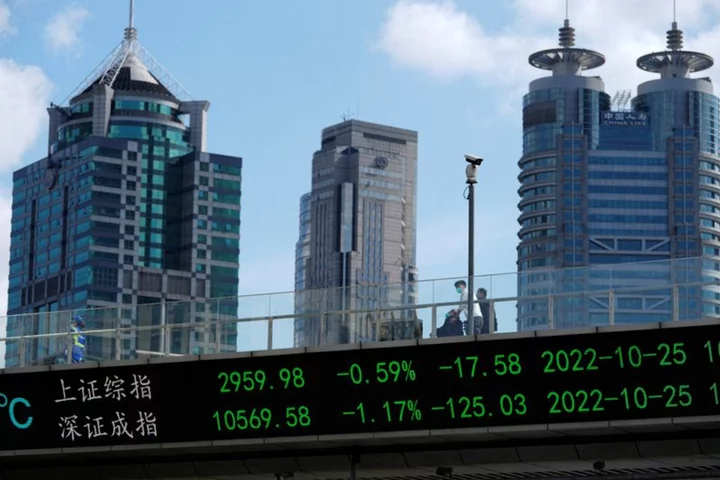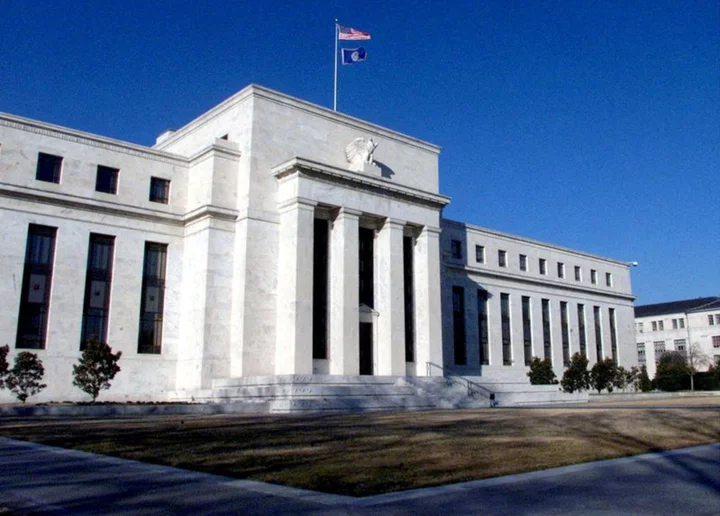By Jamie McGeever
A look at the day ahead in Asian markets from Jamie McGeever, financial markets columnist.
Asian markets on Monday will have their first opportunity to react to Friday's blowout U.S. jobs data and strong rise on Wall Street, although sentiment and direction could be skittish following developments in Israel and Gaza at the weekend.
The eruption of violence could increase flows into traditional safe-haven assets like U.S. Treasuries and other highly-rated government bonds, gold and the Swiss franc, at the expense of riskier assets like emerging markets. Oil prices could pop higher too.
If the market impact of events in the Middle East is limited, however, Wall Street's rally on Friday should set the tone for trading in Asia on Monday, with China also open for business again after the Golden Week Holiday.
To recap, the S&P 500 and Nasdaq on Friday registered their biggest gains since late August, and the S&P 500 snapped a four-week losing streak, after data showed that showed U.S. job growth in September smashed forecasts.
U.S. bond yields rose and the yield curve steepened, but the fact Wall Street rallied too suggests investors may be adjusting their view of the U.S. economy - perhaps it is strong enough to withstand higher borrowing costs, and the natural rate of interest is higher than currently priced.
If the U.S. economy is managing to stay strong while the rest of the world struggles, Asian markets could come under pressure as investment flows into U.S. assets. Good news for the dollar, not so good news for emerging market currencies.
In that sense, a deluge of top-tier Chinese economic data and events this week including consumer and producer inflation, trade, credit and lending growth, and money supply will cast further light on whether the world's second largest economy is back on track.
Or not.
Figures on Saturday showed that China's foreign exchange reserves fell $45 billion in September to $3.115 trillion from $3.16 trillion in August. Analysts had expected a decline to $3.115 trillion.
These figures do not take into account valuation effects of exchange rate and bond price moves in the month, so it is not necessarily the case that Beijing dumped $45 billion of U.S. bonds.
But given the extent of the selloff at the back end of the U.S. bond curve, the issue of foreign central banks potentially offloading some of their Treasuries is once again a red-hot issue.
China's official stash of U.S. Treasuries has declined consistently and substantially in recent years, but much of that is due to valuation effects and the reality is much more nuanced - some observers say China is not selling its dollar assets, and if anything, is actually adding to them.
Here are key developments that could provide more direction to markets on Monday:
- Unfolding events in Israel, Gaza
- Fed's Barr, Logan, Jefferson all speak
- Indonesia retail sales (September)
(By Jamie McGeever; Editing by Diane Craft)


